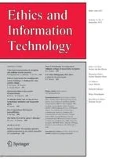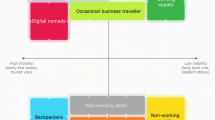Abstract
Will the proliferation of devices that provide the continuous archival and retrieval of personal experiences (CARPE) improve control over, access to and the record of collective knowledge as Vannevar Bush once predicted with his futuristic memex? Or is it possible that their increasing ubiquity might pose fundamental risks to humanity, as Donald Norman contemplated in his investigation of an imaginary CARPE device he called the “Teddy”? Through an examination of the webcam experiment of Jenni Ringley and the EyeTap experiments of Steve Mann, this article explores some of the social implications of CARPE. The authors’ central claim is that focussing on notions of individual consent and control in assessing the privacy implications of CARPE while reflective of the individualistic conception of privacy that predominates western thinking, is nevertheless inadequate in terms of recognizing the effect of individual uptake of these kinds of technologies on the level of privacy we are all collectively entitled to expect. The authors urge that future analysis ought to take a broader approach that considers contextual factors affecting user groups and the possible limitations on our collective ability to control the social meanings associated with the subsequent distribution and use of personal images and experiences after they are captured and archived. The authors ultimately recommend an approach that takes into account the collective impact that CARPE technologies will have on privacy and identity formation and highlight aspects of that approach.
Similar content being viewed by others
References
E. Abreu. Voyeur Web Site JenniCam to go Dark After 7 Years. Online at http://www.boston.com/ae/celebrity/articles/2003/12/10/voyeur_web_site_jennicam_to_go_ dark_after_7_years/ accessed 01.15.2007, 2003
C. Anderson. The Long Tail: Why the Future of Business is Selling Less of More. Hyperion Press, 2006
T. Berners-Lee. Hypertext and Our Collective Destiny. Online at http://www.w3.org/Talks/9510_Bush/Talk.html accessed 01.16.2007, 1995
Bennett C., Raab C. (2006) The Governance of Privacy: Policy Instruments in Global Perspective. The MIT Press, Massachusetts
K. Blair and P. Takayoshi. Navigating the Image of Woman Online. Online at http://english/ttu.edu/kairos/2.2/ coverwebe/invited/kb.html accessed 01.16.2007, 1997
P. Brown. Jennicam: Last Week at Jenni’s Place. Online at http://www.arttech.ab.ca/pbrown/jenni/jenni.html accessed 01.15.2007, 2007
V. Bush. As We May Think. The Atlantic Monthly, July: 1–8, 1945
E. Foster. History Writ Small. Online at http://www. infoworld.com/weblog/foster/2005/02/10.html accessed 01.16. 2007, 2005
L. Gerrard. Thoughts on Computers, Gender, and the Body Electric. Online at http://english.ttu.edu/kairos/2.2/coverweb/invted/lg.html accessed 01.15.2007, 1997
Gilbert D., Kerr I., McGill J. (2006) The Medium and the Message: Personal Privacy and the Forced Marriage of Police and Telecommunications Providers. Criminal Law Quarterly 54(4):469–507
X. Jardin. Fancy Meets Function on Runway, Wired News (5 August). Online at http://www.wired.com/news/ culture/0,1284,68432,00.html accessed 01.15.30, 2005
Jimroglou K. (1999) A Camera With a View: JenniCAM, Visual Representation, and Cyborg Subjectivity. Information, Communications and Society 2(4):439–453
I. Kerr and S. Mann. Exploring Equiveillance. Online at http://www.anonequity.org/weblog/archives/2006/01/exploring_equiv_1.php accessed 01.16.2007, 2006
H. Landman. The Sonnets to Jennicam. Online at http://www.polyamory.org/∼howard/Jenni/ accessed 01.16.2007, 1996
Lepkowski W. (1999) What did Vannevar Bush Really Do? Chemical & Engineering News 77(3):43–47
S. Mann. Existential Technology: Wearable Computing is Not the Real Issue! Leonardo. MIT Press Journals, 36(1): 19–25, 2003. Online at http://www.eyetap.org/papers/docs/id_leonardo_36_1_19_0.pdf accessed 01.31.07
S. Mann. Continuous Lifelong Capture of Personal Experience with EyeTap in Proceedings of the 1st ACM Workshop on Continuous Archival and Retrieval of Personal Experiences (CARPE 2004). Online at http://www.eyetap.org/papers/docs/p1-mann/, 2004
S. Mann. Online at http://wearcam.org/glogs.htm acessed 31.01.07, 2007
S. Mann and H. Niedzviecki. CYBORG: Digital Destiny and Human Possibility in the Age of the Wearable Computer. Doubleday Canada, 2001
S. Mann, J. Nolan, and B. Wellman. Sousveillance: Inventing and Using Wearable Computing Devices for Data Collection in Surveillance Environments. Surveillance & Society, 1(3): 331–355, 2003. Online at http://www.eyetap.org/papers/docs/sousveillance.pdf accessed 01.31.07
Miller C. (1998) Learning from History: World War II and the Culture of High Technology. Journal of Business and Technical Communication 12:288–295
D. Norman. Turn Signals are the Facial Expression of Automobiles. Perseus Publishing, c. 6, 1992
J. Nyce and P. Kahn, editors. From Memex to Hypertext. Academic Press Inc., 1991
Ontario Information and Privacy Commissioner. Privacy Guidelines for RFID Information Systems (RFID Privacy Guidelines). Online at http://www.ipc.on.ca/images/Resources/up-rfidgdlines.pdf acessed 01.31.2007, 2006
Peeping Moe Website. Online at http://web.archive.org/web/20010309025939/http://www.peepingmoe.com/netcams/ jennicam/jenni-fan-home.html accessed 01.16.2007, 2001
Peterson T. (2006) Memex Forges An Early Link. Computerworld 40:30
Personal Information Protection and Electronic Documents Act (PIPEDA). Schedule 1, Principle 4.3.8. Online at http://laws.justice.gc.ca/en/showdoc/cs/P-8.6/bo-ga:l_1-gb:l_4// en#anchorbo-ga:l_1-gb:l_4 accessed 01.31.2007, c. 5, 2000
Regan P. (1995) Legislating Privacy. University of North Carolina Press, Chapel Hill
J. Ringley. Frequently Asked Questions (14 May 2003). Online at http://webarchive.org/web/19980514225722/jennicam.org/faq/jenni.html accessed 01.15.2007, 1998
J. Ringley. Notice (27 December 2003). Online at http://web.archive.org/web/19980514225722/jennicam.org/faq/jenni.html, 2003
T. Senft. Camgirls: Webcams, Live Journals and the Personal as Political in the Age of the Global Brand. Ph.D. Dissertation, Department of Performance Studies, NYU, 2005
M. White. The Body and the Screen: Theories of Internet Spectatorship. The MIT Press, 2006
G.P. Zachary. Endless Frontier: Vannevar Bush, Engineer of the American Century. MIT Press, c. 1, 1999
Acknowledgments
The authors wish to acknowledge and thank Katie Black, Jeremy Hessing-Lewis, Louisa Garib, Brad Jenkins and Julie Shugarman for their invaluable research and editorial assistance, as well as the Social Sciences and Humanities Research Council for funding On the Identity Trail, a four year research project from which this article derives. Special thanks also to our colleague Steve Mann for spurring us on with truly stunning and original ideas, as always, inspiring much shock and awe.
Author information
Authors and Affiliations
Corresponding author
Rights and permissions
About this article
Cite this article
Bailey, J., Kerr, I. Seizing control?: The experience capture experiments of Ringley & Mann. Ethics Inf Technol 9, 129–139 (2007). https://doi.org/10.1007/s10676-007-9135-5
Received:
Accepted:
Published:
Issue Date:
DOI: https://doi.org/10.1007/s10676-007-9135-5




